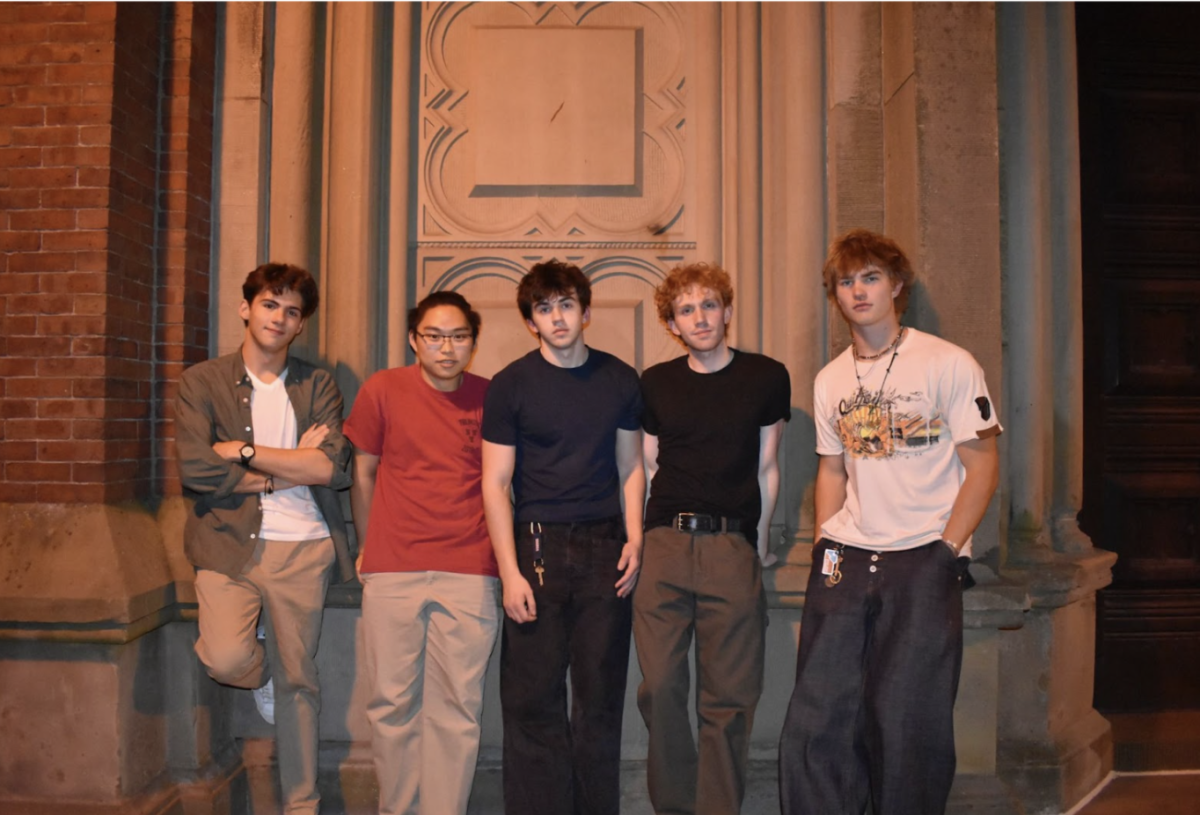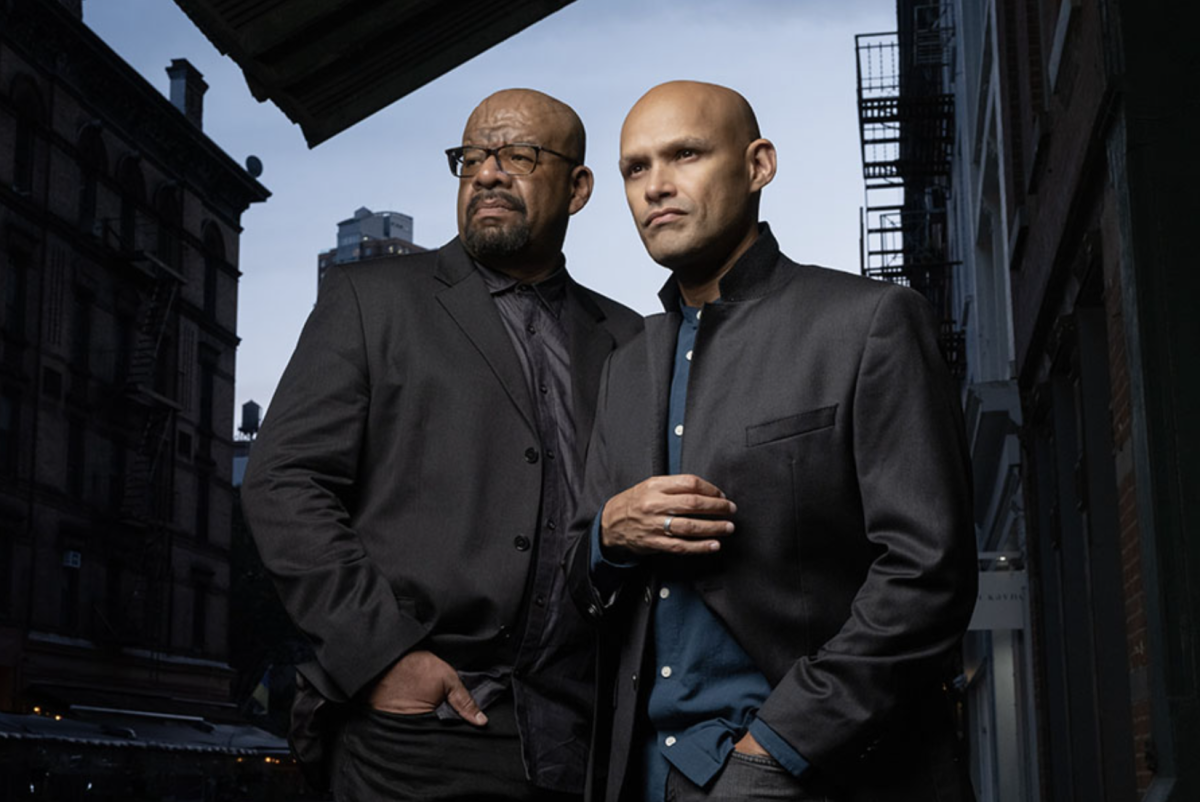CW: mentions of colonization and other forms of violence against Indigenous people
Death comes to us all, but in “The Trail to Oregon!” it comes not as an act of fate but as a consequence of the audience’s choice. Before the show begins, something akin to a Greek myth takes place: the audience, who is asked to moonlight as the Moirai, assigns destinies to the characters onstage. “Who do you want to die?” one of the ticket collectors asked, pen poised to make note of the answer. “The mother, the father, the son, the daughter, or the grandpa?” It’s a power play that’s funny and a bit destabilizing. But it’s also the first expression of the symbiotic relationship that the show creates between the cast and the audience, between what’s planned and what’s left to chance.
On Feb. 11 and Feb. 12, Wellesley’s student-run theatre company Upstage presented “The Trail to Oregon!,” a comedy musical released by Team StarKid in 2014. Part absurdist and sometimes historically accurate, “The Trail to Oregon!” is an admixture of the dangers and delights a family of five pioneers encounters as they embark on their journey from Missouri to Oregon along the Oregon Trail in 1848. The wagon ride to Oregon, necessitated by the family farm burning down — an act of God or a negligent father — is likened to a fun and educational family vacation.
What moves “The Trail to Oregon!” beyond the conventions of a traditional musical, or even a traditional comedy, is the source material — the educational video game series “The Oregon Trail”— and the interactive and variable qualities it lends the show. Playwrights Jeff Blim, Nick Lang and Matt Lang honored the game’s structure and premise by allowing the audience to name each character and choose who ultimately dies of dysentery. What transpires is a silly and delightfully chaotic show that’s always structured differently. “No two shows will ever be the same,” the characters remind us in the first song, “Gone to Oregon.” Shea Gardner ’25, who directed the production, leans into the chaos.
“I thought it was most important to give Wellesley College an opportunity to enjoy themselves,” Gardner said. “This show is funny, it’s ridiculous, it’s outrageous, and I wanted the community to forget all of their stress and just laugh together.”
The strange lyrics, ox puppet, bandit kings, lobster motif, octagonal wheels on the Wago-9000 (the family’s overpriced and ill-equipped wagon) and Mike’s Hard Lemonade product placement are just a few examples of the strange, strategic elements the musical welcomes. The great strength, however, lies in the sheer energy and color each actor brings to heighten the absurdity onstage.
“We wanted to focus on the ridiculousness of the script and allow the actors to really play with their characters and improv, so a lot of the staging and choices came directly from the actors or were suggested by them,” Gardner said. “It was a very collaborative process.”
The collaborative process between the characters and the audience — whom they nickname the “watchers” — is another strategic element that encourages the actors’ antics onstage. The characters luxuriate in audience participation, but they also damn the “watchers” to hell when the choices they make negatively impact them. The weight of choice is felt; the characters can’t overrule or free themselves from the meta power play that drives the musical.
The cast and crew also wanted to recognize the darker history of colonialism on the Oregon Trail by including a land acknowledgment in the pre-show announcement.
“This show is a comedy and what happened to Indigenous people and racial minorities during this time is not a laughing matter, so balancing that is very important to the whole ‘Trail to Oregon!’ team,” Gardner said.
“The Trail to Oregon!” deconstructs the relationship between performance, plot and the audience. The shared sense of humor between the actors and the audiences does not disturb the plot; in fact, it often enhances it and fosters a deeper investment in the show.
“This show is meant to bring Wellesley together and away from the stress of our classes, so if it can accomplish that, I will be very happy,” Gardner said.




